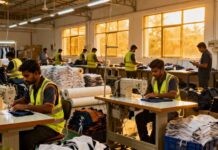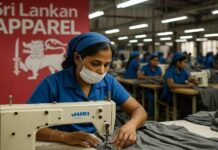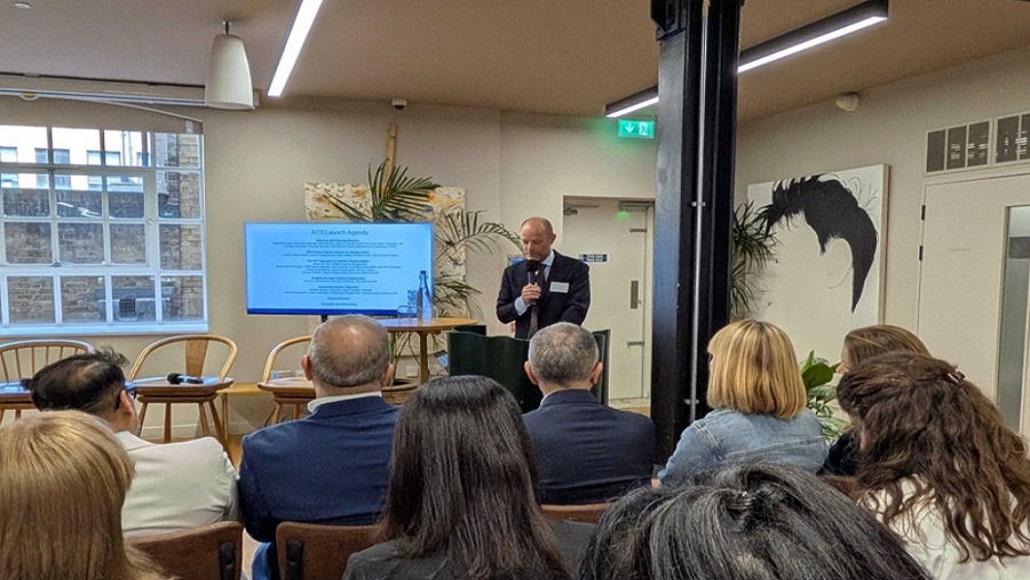In a crucial advancement towards environmental sustainability, global apparel and textile manufacturers have launched the Apparel and Textile Transformation Initiative (ATTI). This initiative aims to place manufacturers at the forefront of the efforts to tackle climate and environmental challenges throughout the supply chain.
Unveiled on Thursday during a panel discussion at London Climate Action Week, ATTI is spearheaded by the International Apparel Federation (IAF) and the International Textile Manufacturers Federation (ITMF). Bangladesh and Turkey are the first countries to pilot the initiative, with Bangladesh’s prominent trade organizations—the Bangladesh Garment Manufacturers and Exporters Association (BGMEA) and the Bangladesh Knitwear Manufacturers and Exporters Association (BKMEA)—officially joining the program.
The ATTI seeks to streamline environmental requirements among brands and create scalable solutions tailored to local needs while aligning with global sustainability objectives. By emphasizing the role of manufacturers, the initiative aims to provide structured, practical approaches to environmental transformation.
Miran Ali, Managing Director of Bitopi Group and former vice president of BGMEA, has been appointed as a key coordinator between the IAF, international brands, and Bangladeshi trade associations. He expressed the challenges faced by local manufacturers in meeting various renewable energy and sustainability targets set by different buyers. “It’s impractical for a factory working with multiple clients to adhere to numerous differing environmental strategies,” Mr. Ali explained to The Financial Express.
He believes that the ATTI will help consolidate and unify environmental strategies, thereby reducing the burden of repetitive social audits, which often disrupt production and waste valuable resources. “Manufacturers are eager to avoid audit fatigue while addressing the sector’s environmental footprint,” he added.
Importantly, the initiative encourages global brands to actively participate and co-invest in the transition from carbon-heavy practices to renewable energy systems. “Brands must be integral to this transformation,” Mr. Ali emphasized, “not just setting goals but also sharing accountability.”
IAF Secretary General Matthijs Crietee stated, “The launch of ATTI signifies a new chapter in our industry transformation efforts. Manufacturers are not merely participants; they are pivotal in developing the practical solutions our sector urgently requires.”
The ATTI framework introduces a structured global governance model with national implementation through ATTI Country Chapters. These chapters, led by national apparel associations, will customize transformation plans to address local contexts.
The initiative is designed for global coordination while ensuring local action, involving stakeholders at all levels, including manufacturers, brands, governments, financial institutions, and civil society.
Christian Schindler, Director General of ITMF, highlighted that ATTI encompasses a broad range of issues, including emissions, water management, chemical usage, and waste handling. The initiative aims to enhance existing sustainability efforts by offering a comprehensive approach rooted in the specific needs of each country.
ATTI follows a three-phase model: an initial Needs Assessment to identify gaps and opportunities, a Collaborative Solutions Design phase involving relevant stakeholders, and a Structured Implementation stage aimed at supporting investments, policy development, clean technology deployment, and technical assistance.
The pilot chapters in Bangladesh and Turkey are already underway; in Turkey, a national assessment is making progress, and a recent meeting in Istanbul brought together manufacturers, brands, and government representatives to discuss initial findings and prioritize collaborative actions, such as technology upgrades, improved access to financing, and regulatory engagement.
By uniting diverse stakeholders under a cohesive and practical framework, ATTI is expected to catalyze transformative changes in one of the most carbon-intensive industries globally, starting with Bangladesh and Turkey, two vital contributors to global apparel manufacturing.

































